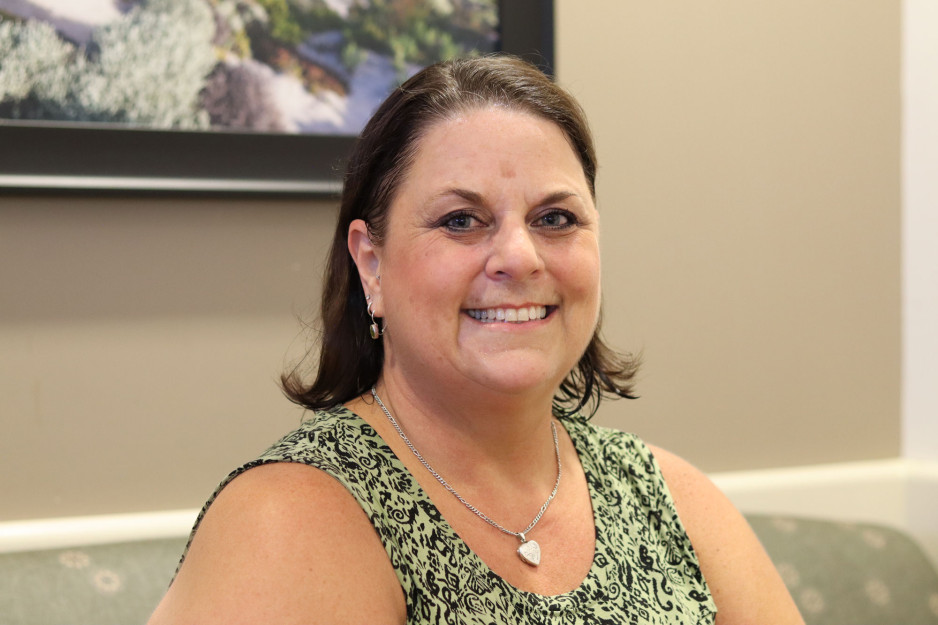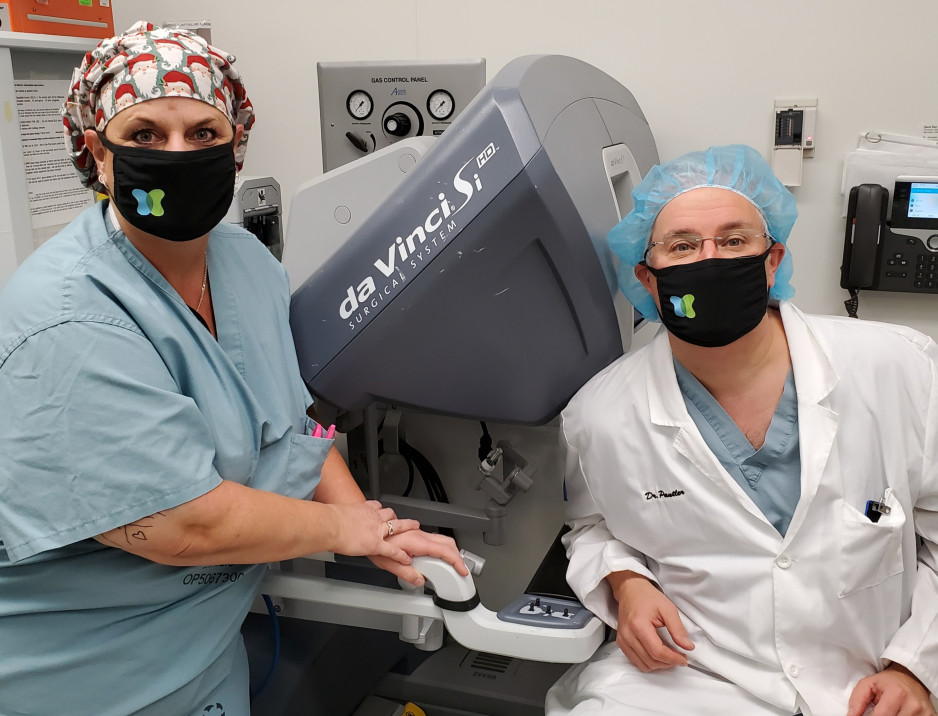Both sides of the operating room
Debbie Grant understands the critical importance of investing in modern medical equipment, having witnessed firsthand how state-of-the-art technology can save lives, including her own.
In 2017, her life changed dramatically when an MRI for back pain revealed a mass on her kidney—a CT scan suggested it was likely kidney cancer.
Wasting no time and determined to receive the best care, she requested a referral to Dr. Stephen Pautler, a physician and urologist known for his expertise in robotic surgery. She was scheduled for a robot assisted partial nephrectomy—a complex surgery done to remove cancer while preserving as much healthy kidney tissue as possible.
One advantage to robot assisted surgery is the integration of image-guided surgical tools such as in-body ultrasound probes. The probe is designed to provide high-resolution, real-time imaging to give immediate visualization. With this, surgeons can see and evaluate the site of surgery in real time to make immediate and crucial adjustments or decisions. The probe allows for minimally invasive procedures that reduce the damage done to healthy tissue. Thanks to this advanced piece of technology and its critical image guidance capabilities, highly complex surgeries like partial nephrectomies are possible.
As a registered practical nurse in the operating room at St. Joseph’s, Debbie knew the team that would be working on her and she had immense confidence in her care.
“I knew I would be in the best hands, and I was right. The care they gave me was all excellent.”
For Debbie, a seasoned professional in the operating room, being a patient was a different experience.
“I was quite nervous, you know. About the falling asleep part. You’d think that working in the operating room you would have different feelings but it’s different when you’re on the other side. But everybody was very welcoming making sure I was as comfortable as can be.”
As she waited for the operation, Drs. Pautler and Peter Mack, her anesthesiologist, visited her to calm her anxieties, ensuring a smooth transition into anesthesia.
Maintaining this level of excellence takes a constant investment in cutting-edge technology and research. And often, donor support is the key to funding advanced equipment like ultrasound probes that are used in conjunction with the da Vinci surgical robot. The generosity of donors and the community will be essential in securing a new ultrasound probe, helping to detect and treat diseases faster – and save the lives of more people like Debbie.


